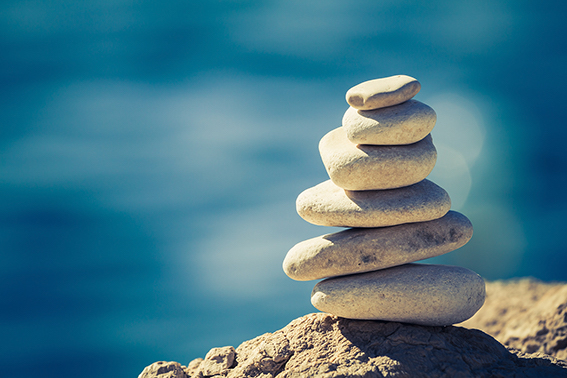In today’s fast-paced world, achieving a harmonious balance between work and personal life has become a paramount goal. The constant demands of work, coupled with the desire to maintain meaningful personal connections and pursue individual passions, often leave us feeling stretched thin. The pursuit of work-life balance is not just about dividing time between professional responsibilities and personal activities; it’s about cultivating a lifestyle that nurtures well-being, productivity, and happiness.
Understanding the Importance of Balance
Work-life balance is more than just a buzzword—it’s a fundamental aspect of leading a fulfilling life. When work takes over, it can lead to burnout, stress, and negatively impact physical and mental health. Striking a balance between work and personal life is essential for maintaining overall well-being and happiness.
Setting Boundaries and Priorities
Maintaining a clear boundary between work and personal time is vital for achieving balance. Determine your priorities and allocate time accordingly. If you’re constantly taking work home, it’s challenging to fully engage in personal activities. Learn to set limits and communicate your boundaries to colleagues and supervisors.
Effective Time Management
Time is a valuable resource, and managing it efficiently can significantly impact work-life balance. Implement time management techniques like the Pomodoro technique, which involves focused work intervals followed by short breaks. By batching similar tasks together, you can streamline your workflow and create more space for personal activities.
Embracing Flexibility and Adaptability
The rigid 9-to-5 schedule is no longer the only option. Embrace flexible work arrangements if possible, such as remote work or flexible hours. Flexibility allows you to adapt your schedule to accommodate family needs, personal commitments, and unexpected events without sacrificing productivity.
Unplugging and Digital Detox
Constant connectivity to devices can blur the lines between work and personal time. Make a conscious effort to unplug during non-working hours. Designate specific times for checking emails and messages. Engage in regular digital detoxes to recharge and reconnect with the world around you.
Pursuing Hobbies and Personal Passions
Engaging in activities you’re passionate about outside of work revitalizes your spirit and enhances work-life balance. Whether it’s painting, playing a musical instrument, gardening, or cooking, hobbies offer a creative outlet and a way to decompress from work-related stress.
Physical and Mental Well-being
A healthy body and mind are the foundations of a balanced lifestyle. Prioritize regular exercise, balanced nutrition, and sufficient sleep. Physical well-being directly influences your mental clarity and emotional resilience.
Quality Family and Social Time
Nurturing relationships with loved ones is a cornerstone of work-life balance. Make an effort to disconnect from work during family and social gatherings. Engage in meaningful conversations and activities that strengthen your connections.
Learning to Delegate and Seek Help
The desire to handle everything on your own can lead to overwhelm. Learn to delegate tasks both at work and home. Recognize when you need help and don’t hesitate to ask for it. Delegating empowers others and frees you up for more important tasks.
Mindfulness and Stress Management
Mindfulness practices, such as meditation and deep breathing exercises, are powerful tools for managing stress and staying present in the moment. Dedicate a few minutes each day to mindfulness to reduce stress and increase mental clarity.
Emotional Detachment from Work
When work follows you home mentally, it can erode work-life boundaries. Practice emotional detachment by consciously switching off from work-related thoughts when you leave the office. Engage in activities that help you transition into a different mindset.
Continuous Self-Assessment and Adaptation
Achieving work-life balance is an ongoing process that requires regular self-assessment. As circumstances change, be open to adjusting your strategies and priorities. Flexibility and adaptability are essential for maintaining equilibrium.
Communication with Employers and Colleagues
Open communication with employers and colleagues is key to achieving work-life balance. Discuss your boundaries and expectations, and seek support when needed. A supportive work environment fosters a healthier balance.
Conclusion
Striving for work-life balance is not an unattainable goal; it’s a commitment to your well-being and happiness. By understanding the importance of balance, setting boundaries, practicing effective time management, and embracing flexibility, you can create a lifestyle that harmonizes work and personal life. Remember, work-life balance is a journey that requires intention, mindfulness, and a constant willingness to prioritize your own well-being.
FAQs
- Is achieving perfect work-life balance possible?
-
- While perfection might be elusive, significant improvements in work-life balance are achievable with conscious effort and the right strategies.
- What if my job demands constant availability?
-
- Communicate with your employer about reasonable expectations and boundaries. Implement strategies like time blocking to create dedicated personal time.
- How can I prevent work-related stress from affecting my personal life?
-
- Practice techniques like mindfulness and emotional detachment. Engage in activities that help you switch off from work mode.
- Can work-life balance differ for different professions?
-
- Absolutely. Work-life balance can vary based on job requirements and personal preferences. The key is finding what works best for your situation.
- Is it selfish to prioritize personal time over work demands?
-
- Prioritizing personal time is essential for overall well-being. A balanced and rested individual is more productive and effective in all aspects of life, including work.




